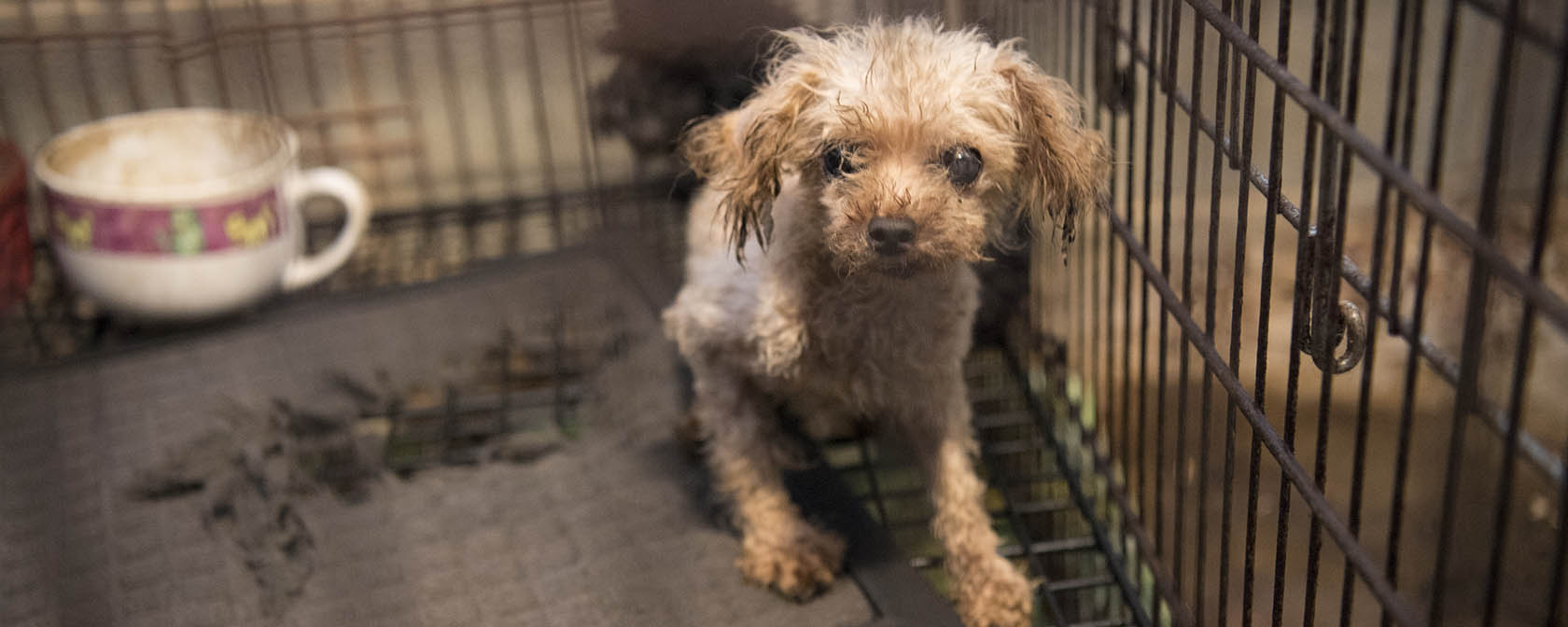By Sara Amundson and Kitty Block
Three years ago, the U.S. Department of Agriculture inexplicably blacked out records of inspections at puppy mills, roadside zoos, facilities that do invasive research on animals, walking horse shows and other operations, leaving those who use—and potentially abuse—animals in their care with little or no accountability for their actions. Today, following a directive from Congress, the agency began restoring these records online, marking an important win for animals, for American consumers, and for animal advocates who fought long and hard for this outcome.
The saga began in early February 2017, shortly after the Trump administration took office. The USDA purged from its website the searchable database of Animal Welfare Act and Horse Protection Act inspection reports and enforcement records on some 9,000 licensed facilities and operations that use animals, with no clear explanation of why it was doing so. The purge left Americans in the dark, and was clearly an attempt to keep groups like ours from holding the USDA accountable for its enforcement efforts and from getting the data we need to expose potential animal abuse at these facilities.
What the blackout did achieve was giving AWA and HPA violators the cover they wanted to continue their substandard and frequently abusive animal handling practices with no worry of public scrutiny. The HSUS has relied for years on USDA inspection data to come up with resources like our annual Horrible Hundred reports that educate consumers on problem puppy mills. Although our intrepid researchers continued to create these reports even after the blackout, by sourcing information from state inspection records or by posting partial information without specific business names, the blackout of the USDA records made their job that much harder, if not impossible.
The purge was only the beginning, however. In the months and years that followed, the USDA continued to cut down on its oversight of businesses that use animals and its enforcement of the Animal Welfare Act and Horse Protection Act—a fact reported with concern in national media outlets like the Washington Post.
We brought you news about these developments as they occurred even as we kept up a multi-faceted fight to end the blackout. We filed requests for the inspection and enforcement records under the Freedom of Information Act, took the battle to court when the USDA redacted the identities of the animal abusers from the records they released, and we successfully mobilized members of Congress to join us in this important fight.
Soon after the records were taken down, the Humane Society Legislative Fund worked with a bipartisan group of 120 Representatives and Senators who wrote to the Trump administration demanding that the documents be available again. Over the years, our allies in Congress also urged the USDA, through the yearly appropriations bills, to repost these vital records.
Most importantly, in December 2019, Congress enacted a provision in the FY20 appropriations bill, issuing a clear mandate to the USDA to reinstate full, searchable public access to all AWA and HPA records without redactions. We are grateful to the 39 Senators and 188 Representatives and the appropriators—particularly House Agriculture Appropriations Subcommittee Chairman Sanford Bishop, D-Ga.—for taking on this issue through the appropriations legislation and seeing it through to victory. The bill, signed into law on December 20th, required the agency to restore the purged records on its website within 60 days of the bill’s enactment, and continue posting such records moving forward. Today marks the end of the 60-day period.
However, the fight isn’t yet over. So far, the USDA has posted online the inspection reports it removed in February 2017 and most of those generated since, but it has not yet posted the other AWA and HPA enforcement documents that show what actions the USDA took in response to detected violations (the agency claims those will be posted within the next 60 days). In addition, from our initial review, the documents do not seem to be easily searchable, as they were before the purge.
Finally, the current database of inspection reports is much less user-friendly than the comprehensive database that was taken down in 2017, and many of the violations are simply listed as “no access,” indicating that licensees have been avoiding having non-compliances on their records by simply not opening their doors to inspectors. Also, the enforcement of these laws continues to be weak, as the Washington Post reported in August, with a 92 percent drop in enforcement cases between 2016 and 2019.
We are monitoring the USDA website closely, and we will not stop until all of the inspection records—and enforcement actions—are restored in full. We call upon the USDA to do so swiftly. Our government should not be in the business of protecting those who break violate or flaunt the law, and American taxpayers should have all the information they need to ensure that those who hurt animals do not continue to profit off them.
Kitty Block is President and CEO of the Humane Society of the United States.




